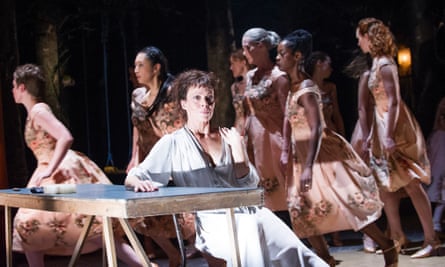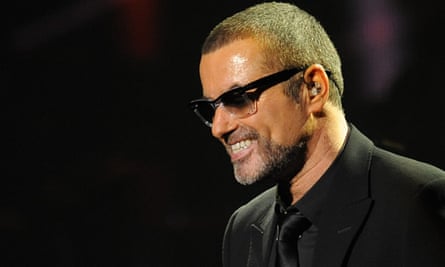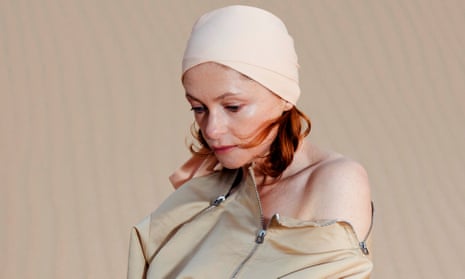As one half of the shape-shifting electronic pop duo that bears her surname, Alison Goldfrapp has been releasing iridescent, intriguing pop music since 2000 (and before that, appearing on 90s classics such as Orbital’s Are We Here?). In recent years, her photography has made her a huge hit on Instagram (she’s now in charge of her group’s visuals), while collaborations with musicians such as John Grant and Christina Aguilera have brought her to new audiences.
Seventeen years after your influential, Mercury-nominated debut, Felt Mountain, your new album, Silver Eye, also explores elements of nature. Is it an ongoing inspiration?
The power of nature and the elemental has always been in our music. But as I get older, I feel the connection to it more. It’s mortality, maybe, but the state of the world too – there is this disregard for our planet everywhere.
Where did this interest start?
When I was a little girl, my father used to wake us at dawn and take us to the woods to watch the sunrise, or when there was a full moon, drive us an hour and a half to swim in the sea. It was magical, a proper adventure. I’m still that person.
Yet you live in London…
A city offers so much: art, books, films… It’s very important for me to have access to that, however much I long for the countryside sometimes.
You were on the Women’s March last month...
Yes I was. It was fantastic. There was an amazing sense of being together and celebrating who we are. What do I think about Trump? Don’t start me off – seriously, don’t. I’m not going there.
Silver Eye explores ideas of transformation. One track, Become the One, is inspired particularly by the 2015 documentary My Transgender Summer Camp and you’ve explored the idea of transitioning before on 2013’s Annabel. What drives that interest?
I’ve always felt that not everybody is one thing. Sexuality and gender are complex. I saw that documentary a few years ago and I was so taken aback by how articulate the main girl was about her experience. At the end, she said: “I’m not changing who I am, I am becoming who I am” and I found that really moving.

In 2014, you were involved in making music for the National Theatre’s celebrated production of Medea. What did you gain from that?
Working with a lot of people was great. I also enjoyed being on the outside, not being a performer, finding out how actors think and work, how directors direct. And the magic of being in a theatre – it was like being a kid again, wandering around backstage and sneaking into the prop room!
That spirit of collaboration has also extended to your music – St Vincent producer John Congleton and drone artist the Haxan Cloak also worked on Silver Eye. Was it weird having someone else in the room?
It was great. I loved having those new elements coming in. And they’re so bloody young. They do everything so quickly.
Silver Eye sees you taking total control of the band’s visuals for the first time. Why now?
I’ve often had ideas about our artwork, but that usually gets seen through someone else’s prism and this time I wanted my own prism. I’d been setting myself projects on Instagram and really enjoying it. Will [Gregory, the other half of Goldfrapp] was super-encouraging: “You should do it!” And on a practical level, I don’t have to pay someone else [laughs]. I was quite nervous, though – it was such a responsibility, but it’s been fun. We went with some wonderful people to Fuerteventura, where there’s this incredible landscape, all this black volcanic rock, and we were driving around there for days, taking lots of shots and videos. I love the feeling of being on location, so that helped. There could be wind, rain, heat, anything! There’s this incredible spontaneity to it.
You’ve previously described a camera as “a shield you can hide behind”. How does that relate to you as a frontwoman?
I’m not a public person. I’ve never been interested in fame or having it for myself. I find the idea bizarre. Artists are often private people. They’re the observers. They’re the people who sit in studios hidden away making things about everyone else.

Some of your favourite musicians have died in the past year: David Bowie, to whom you put a tribute on your website, Prince and George Michael, who was a huge fan of yours. Were you surprised when he chose one of your songs, Paper Bag, as one of his Desert Island Discs back in 2007?
We were honoured and I found it amazing that he liked the kind of music we made. I thought his Desert Island Discs was special, because he gave airtime to all these newer artists. It was very giving and personal. With Bowie and Prince… we don’t live in an era that has artists with that kind of influence any more. We take in information and digest it in our lives in very different ways now.
From where you are – on an independent label, Mute, which is no longer part-owned by EMI – what does the record industry look like to you in 2017?
Well, I don’t know very much about the record industry! Mute is a small operation with a great legacy and you’re trusted, left alone to do your own thing. When you’re on a major, you’re constantly on the edge of being dropped and you feel it. As for making music today, there’s a real excitement about the possibilities of the online world that weren’t around when we started out. There’s an immediacy to it. And the way you can get things out to people directly is really exciting creatively. It’s still difficult for people starting out to get creative stuff out there, but it’s always been hard to do that. You just have to persevere, be really dedicated and have some luck. That’s been our way.
Silver Eye is released on 31 March on Mute

Comments (…)
Sign in or create your Guardian account to join the discussion